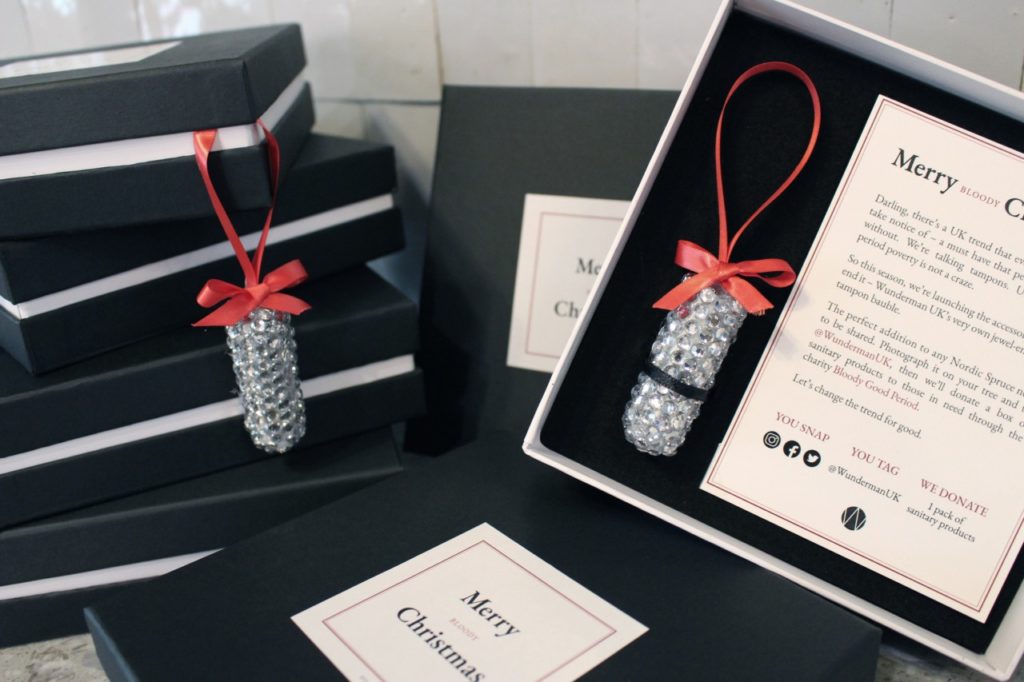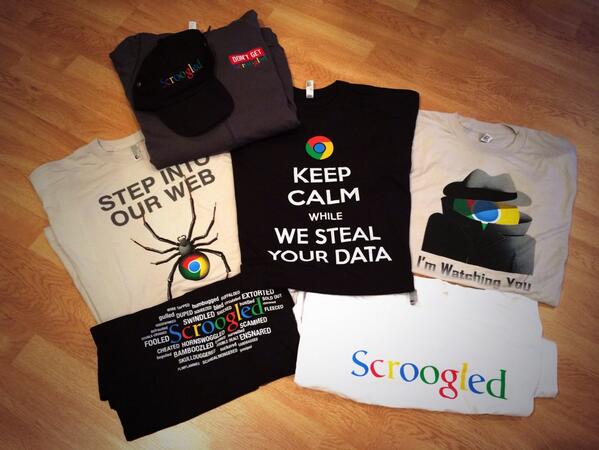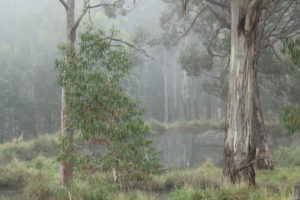The post Engage media ‘Gimmick does not have to be a dirty word! appeared first on Agility Communications.
]]>That all changed a few weeks ago when I had a bad riding accident and couldn’t do much but sit quietly for a while. I ended up watching a lot of Netflix, and due to my pain levels could not cope with anything more taxing mentally than reality TV.
Still I got sick of them pretty quickly and kept moving from one show to another. It was Fashion Fund that struck a chord and led me down memory lane.
Fashion Fund is a competition where ten designers get to work with the biggest names in the business in the hope of becoming the Fund Designer of the Year – an award that comes with $400,000 and a one-year mentorship with some of fashions biggest luminaries.
The bit that interested me was in the first episode. Applicants had to make their pitch to be in the competition. 200 applications were whittled down to 50 and then to ten.
I loved some of the pitches. They were delivered to the Fashion Fund building and distributed amongst the Judges. They were not there to make their pitch personally – their application had to do that for them.
The ones shown on TV, (which mostly comprised of the ten successful applicants) were sophisticated, beautiful and told a story.
They had to capture the judges’ attention and imagination.
The concept reminded me of the pre-digital days of the media release, where, depending on the pitch we sent the media something, (such as a gimmick) to
In the case of my work, which was often more about advocacy than product, finding something witty or clever that would help to tell our story helped enormously. I clearly remember a women’s health campaign where a colleague rolled up the releases and inserted them into speculums and delivered them to media and to members of parliament.
Businesses still do this today, the fashion industry in particular, and often via digital tools. Episode one took me back to the days of tangible three dimensional products that could be picked up, put down and moved around.
Think about including something that will surprise your media outlet, blogger, influencer in your next pitch and if you have access to Netflix, I recommend watching the first episode for examples of beautiful products that tell a story and set out to impress and influence.
I did a quick google for modern examples of tangible ‘things’ to go to media and here are a few finds:
Wunderman’s UK office created a range of tree decorations made from tampons and sent out to clients, influencers and media. When the gift was shared on social media tagging the agency, they pledged a box of period products to charity Bloody Good Period.


A
You can probably imagine various situations where a witty and relevant t shirt slogan might grab attention from the media – just make sure that it is relevant to the campaign.
This mystery box is a great example of including a few small inexpensive products that tell a great story of a neighbourhood, but could easily include items to tell a broad range of stories.
If you want to learn how to create a digital media kit go to our online marketing course Agile Communities – heaps of short courses for the Marketing and PR Manager practitioner.
The post Engage media ‘Gimmick does not have to be a dirty word! appeared first on Agility Communications.
]]>The post Drop the Jargon and deliver engaging communications appeared first on Agility Communications.
]]>It’s Drop the Jargon day today! Most of us know that we should leave jargon out of our communications, but not all of us can do it.
Why not use this day to ensure that your future communications are jargon free and engaging?
Business communicators should be, (but aren’t always), experienced at producing information in plain English. Even if we get it right in writing, we need to be sure that all of our communications are clear.
Generally, when we write we stop and reflect and re-read, when we speak, we may not do this.
When we speak to our colleagues, jargon can be inevitable, a shorthand understood by our profession. But it is a real communications problem when it is used to communicate with the public.
Why should we avoid jargon?
- When we keep our language clear and simple we increase readability which results in greater engagement.
- At a time when we have more access to information than ever before, our audiences will quickly move on if the communications are not clear.
- In a digital world, we do not share unnecessarily complicated information
- The media will not pick up your news that is full of jargon
And perhaps the best reason of all – Do not write to be understood. Write so that you cannot possibly be misunderstood.
How can we avoid jargon?
- Stay conscious of, and tailor your communications to, your audience(s).
- Only use the specialised terms where there is not an every-day alternative and you know that the audience will understand the term
- Don’t try to show off using big words
- Do not use a jargon term where perfectly ordinary terms will be just as effective.
- Use simple language that tells a story
- Use examples and anecdotes
Contact us if you want some help with your writing to keep it interesting and understandable,
The post Drop the Jargon and deliver engaging communications appeared first on Agility Communications.
]]>The post What I have learned about Personal Branding – a personal experience appeared first on Agility Communications.
]]>I recently wrote a series of short blogs on creating my personal brand. The stimulus for that was a magnificent photo shoot with Juanita Broderick. The links to each post are below, along with an infographic that I created on the process.
Post One My Experience of Personal Branding – the first in a series
Post Two Finding My Personal Brand – part 2 in a series
Post Three My Personal Brand – The Next Level – part three in a series
Post Four Upping the Public part of the Personal Brand – Part 4 in a series
The post What I have learned about Personal Branding – a personal experience appeared first on Agility Communications.
]]>The post Upping the Public part of the Personal Brand – Part 4 in a series appeared first on Agility Communications.
]]>My decision to be photographed by Juanita required me to think about my physicality – how I appeared and how I was seen and assessed.
Not something I hadn’t thought about, but not something that I had seriously considered doing anything about. Authentic is very important both to me and to my clients. With me, what you see is what you get. Outdoors woman madly in love with animals, any animals, but particularly my pigs, horses, cows and of course Issy.
But all the same on a stinking hot day I arrived at Juanita’s studio, suitcases and business props such as my banner in tow.
First part of the transformation was hair and makeup. I loved every moment of this experience and wished that it was a skill I possessed, although even if it was, it is more likely that I would be found mucking out the pig’s yards than adjusting my makeup.
Several changes of clothes and we are off.
Given some of the anxiety that I felt, I think that it is worthwhile to mention some of the things that helped me on this journey and on this day:
Trust – I was putting myself in the hands of an expert, actually two experts, a hair and makeup expert and a stunning photographer, they were going to do their best with me and if it all went pear shaped I didn’t have to use the photos. But I trusted that they would be great and they were much better than great.
Trust that Juanita wasn’t worrying about how she could possibly get a good shot.
Prepare – Juanita suggested that I bring some business props – no brainer, but I would not have thought of it. I brought my banner, an easel that I sometimes use in workshops and pens, laptop etc. I am so glad that I did. Fantastic, immediately useable shots.
Plan – I spent time thinking about what I brought to my work and therefore to the work of my clients and what I wanted the photos to portray:
I have a wealth of experience and learned wisdom
My communications’ background helps me to plan and deliver engaging strategies
I have empathy for older business owners – many have a fear of this changing world of technology, I can help them to come to grips with it painlessly
Quick to come up with solutions
Transparent values and ethics
Sense of humour
Clothes – I brought every piece of clothing that I liked, I didn’t expect to use them all and I did not, but as the artistic director, Juanita chose with my input and she made great decisions.
If you would like to refresh your personal brand and want some new photos, you cannot go wrong. The photos, I hope, speak for themselves. Contact us for help with your strategy
Meet Juanita at Broderick Photography:
https://www.facebook.com/broderickphotography.com.au/
https://www.linkedin.com/in/juanita-broderick-9aa856100/
https://www.instagram.com/broderickphotography/?hl=en
The next post will be about important strategies in developing your personal brand.

Juanita Broderick brought out the cheeky, the zany and the professionals in this photo shoot of Noelene Gration
The post Upping the Public part of the Personal Brand – Part 4 in a series appeared first on Agility Communications.
]]>The post My Personal Brand Experience – the next level – Part 3 in a series appeared first on Agility Communications.
]]> d when two black dogs met.
d when two black dogs met.
I was walking around Lake Daylesford with my rescued greyhound Issy. Lorne was doing the same with his rescued greyhound Evie. Peas in a pod in appearance, night and day in temperament. Both beautiful, gentle animals, they facilitated a chat that resulted in a meeting with Lorne’s partner Juanita. Lorne and Juanita are two of the nicest people in the world and both incredibly clever at what they do.
However, it’s Juanita’s skill I want to highlight in this post.
Lorne mentioned that his partner liked to photograph women. And by God is she good at it.
But Juanita is not just a good photographer, she is brilliant. She brings out the essence of the person that she is shooting. Their strength, their vulnerability, the different ways that they want to be seen in the world.
Recently I was surprised and flattered to be asked if I would like a shoot. YES!
Then came concerns and fears that I am oh so familiar with… I can’t do this I’m too old too fat too unattractive. I don’t have anything nice to wear… I don’t think that I can do this…
I am not surprised that a whole lot of unhealthy emotions arose, but I didn’t really expect them either. When I think about my ‘personal brand’ I can’t help but ask myself “how did I end up in public relations?”
It was an odd career choice for someone who grew up with a mother who freely admits that she doesn’t like people. Therefore, our family had little to do with people. Few visits and fewer visitors and less than brilliant social skills.
My choice of career became clearer to me when a friend asked “How come you’re not in the media? Isn’t that your job? “I explained that it wasn’t about me, it was about helping my clients to get stories in the media (or stay out of the media). I loved the strategy, the liaison, the facilitating others into the media, while I stayed clear of the public eye.
So now, my personal brand was starting to take on a much more public hue.
Key Learnings
- Feel the fear and jump at opportunities anyway.
- Your values and attitude are what matter
- Even though you do the job every day don’t forget to reflect
Post 4 in the series is what I learned from my photo shoot experience
.
The post My Personal Brand Experience – the next level – Part 3 in a series appeared first on Agility Communications.
]]>The post Finding my Brand – Part 2 in a series appeared first on Agility Communications.
]]>This was new for everyone and there was no-one else in my community working with social media the way I was. It was becoming something that I was known for. However, once again, that was happening without any conscious intent from me. Having only recently learnt my lesson, I spent some time trying to decide if this was something that I wanted to do or if it was just a distraction.
I worked in media and media was changing at an incredible rate. My journalist contacts were losing their jobs and becoming PR consultants themselves. Writing for business was still required but more and more, this was writing for digital mediums and online audiences.
I had just decided that this was the direction that I wanted to go in when I was asked to become a social media facilitator and mentor for Federation University. A new 3 year federally funded program, Digibiz wanted small to medium business to be using the Internet for business when the NBN came to their neighbourhood.
I went on to deliver many workshops on social media in my community, but also to another four local government areas in the region. I mentored many small businesses in strategy, practical uses and application of social media and met many of the local businesses that I had not until now known.
I was in front of businesses, I was becoming known, I was successful and I decided that yes, social media was on the ascendancy and so important to the goals my clients had, that I would continue to do this work that I loved, was good at and could become part of my personal brand.
Not the only thing I did, not the only thing that I wanted to do, but something that I was passionate about and that I enjoyed.
Key learnings
- Jump at opportunities to do what you love, stay up to date so that you can go on teaching in an ever-changing medium
- Don’t worry about what people think – mostly they think that you are great! The occasional person may not, but let it go
- Stick to your values and be transparent about them
Thank you to Helen Thompson and
This is part two in a four part series on developing my personal brand.Part three will be available shortly.
The post Finding my Brand – Part 2 in a series appeared first on Agility Communications.
]]>The post My experience of Personal Branding -The first in a series appeared first on Agility Communications.
]]>Personal brand is something that has excited my thinking for a few years now. I have worked with entrepreneurs, artists and business people on their personal brand and I love that it is one of the services that I offer.
But it wasn’t always thus.
Seventeen years ago I moved from Melbourne to a small farm just outside a busy tourist town 100 or so km’s away. For a few years, I commuted to my job as PR Manager for a national organisation creating and implementing strategies along with my team of five.
After a while, I realised that although I had moved to paradise, I spent very little time there and knew few people, because the bulk of my time was travelling to or from my Melbourne job. So, I took a plunge, left a well-paid job to start up on my own. Something that I had never considered doing before.
Ascend Public Relations and Communications was the result and for a while my previous employer kept giving me work that I could do from home so I was in a good position while I started the planning and marketing process.
My business moved forward very slowly. So slowly, sometimes it felt like I was going backwards. I was unknown in an industry where word of mouth is very important and where, at least in the immediate area, most businesses were small and on tight budgets.
My major concern was income. I had a mortgage, 20 acres, cows, and horses – and they are expensive!
This was the background to my first BIG mistake in personal branding. I was encouraged to tender for some community consultation work for the local Shire. It was work that I was skilled at from a long and varied career, I jumped at the opportunity – a chance to meet the community, a chance to earn some income. I loved the project and soon after tendered to do the same thing in another town in the Shire.
What had not occurred to me was that this was the work the public were seeing. This is what they thought that I did. They had no way of knowing that this was a stopgap for me. Good honest work, but not what I did.
The next mistake was that while looking for work, I offered my services for little or no cost to community organisations. I still do this, it is very much a part of my ‘brand’ but I am more discriminating about where my effort will have the greatest impact and how much I can do without compromising my paid work or undervaluing the work that I do.
None of these things occurred to me when I was thinking of my brand.
I was to go on and create a second business, same services, different audience about 5 years later, potentially very confusing to my audience. But I had learned from these experiences and mitigated the confusion wherever possible. And, I built a much stronger personal brand in the process.
My Key Learnings:
- Do what you love, love what you do, but try not to get sidetracked – even for money!
- Network, Network, Network. I was feeling lethargic from a perceived business failure when I know that when I leave the office to network, business comes to me
- Provide assistance where you think that you can add the most value, but do it in a way that it does not undervalue the work that you do
This is the first of the series in my own personal brand process you can see the next three posts here
Meet Juanita at Broderick Photography
https://www.facebook.com/broderickphotography.com.au/
https://www.linkedin.com/in/juanita-broderick-9aa856100/
https://www.instagram.com/broderickphotography/?hl=en
The post My experience of Personal Branding -The first in a series appeared first on Agility Communications.
]]>The post New influencer transparency rules – what do they mean for you? appeared first on Agility Communications.
]]>Who do we (and our customers) look to when making decisions about products and services? Well, the strongest influences are these:
· 88% of buyers consider online reviews “very influential” when making a purchase decision.
· 90% of consumers trust peer recommendations. Only 33% trust ads.
(grouphigh.com/social-media-influencers/)
That’s why many good marketing strategies steer us to what are called ‘social influencers’ – people who others trust to recommend products and services. Celebrities, well-known bloggers, people with recognised expertise – they can help bring in clients and sell products.
Using social media influencers comes with some requirements for truth and transparency, and it’s good to be aware of these.
Consumer law requires advertisers to prevent misleading communication, deceptive conduct and misrepresentation, including in testimonials.
Certainly testimonials need to be true. If a writer says he’s visited your facility and found it a terrific place, that visit needs to have happened. But what about when you provide some reward or benefit to those who speak in favour of your work or brand? When do these rewards need to be disclosed?
So far, there is no definitive answer to that (it’s likely to come later via court cases), but there are a few guidelines. One is to look at what impression is created by the posts from an influencer. Is it fairly obvious that this would be a reward-based post? This person might be known to be your brand ‘ambassador’, for example. Or so famous you can’t imagine he wouldn’t expect reward for his services – like Usain Bolt.
But if the posts give the impression of an independent, unscripted, genuine recommendation of your brand – and yet, you’ve paid or rewarded the speaker, this could be a bit murky and could be perceived as misleading or deceptive. One of the ways around this is to include some tags that fairly subtly identify paid advertising – like #spon, #ad, or #ambassador.
Despite these new rules and the challenges of making sure your social media and ad work stay within the law, the positive impact of using thought leaders and social influencers is so strong (88% and 90% are big numbers…) that it’s worth doing, and worth doing right.
If you’d like a hand with a strategy for boosting your brand via social influencers, Agility can help – just give us a call.
(If you want to know more, a good resource explaining this topic comes from lawyer Stephen von Muenster)
The post New influencer transparency rules – what do they mean for you? appeared first on Agility Communications.
]]>The post The early bird gets the …. Time to start thinking about planning your Annual Report appeared first on Agility Communications.
]]>I have gathered the information, written, edited and/or prepared, or many reports.
Although the resultant product has always been a sense of pride for me, my experience in its preparation has ranged between challenging, enjoyable and horrendous.
I am pretty sure that I am not Robinson Crusoe in this experience. The planning stage of an annual report is critical to its success and given that it will soon be time to start thinking about your 2015/2016 report, I have put some notes together to keep in mind this year. It is never too early to start planning.
Planning the report
Take time to ensure that all relevant directors and senior executives are clear on how they want the report to portray the organisation. Don’t be afraid to bring in some examples of your own. Keep track of reports that inspire you and bring them to meetings where layout and presentation is discussed.
Presentation: Will the report be printed, sent out as a PDF or online?
An early decision on how the report will be presented will make a big difference to your planning
Theme: Having a theme that all directors agreed on early will also make a big difference
A theme helps you to keep the report cohesive and makes it easier to find the stories that will make it pop. Also keep in mind – Who is going to write it? Will there be a single cohesive voice or a range of voices from across the organisation. It will be more coherent if written by one person, or written by section leaders and edited by one person for consistency.
Timeline: Make sure that you have a timeline and that everyone knows what it is and sticks to it.
If everyone knows when they have to write/submit/report back on information, you have a hope of getting it ready by the planned date without a nervous breakdown, send out reminders and make sure that the timeline is reasonable
Quality of photos: Start going through photos; make a list of the types of photos that you still need
You want photos that engage emotions and they need to be the right quality for the platform that you have decided to use to present the report.
Availability of stories: Don’t wait until ‘Annual Report time’ to start asking for stories
Remind teams regularly that you need stories for the report and that they should be keeping track of them all year. If they are not used in the report, there are likely many other uses for them.
Understanding regulatory requirements on Annual Reports –
Governments require certain things from government departments and funded organisations. Make sure that you know what is required of you, but don’t let it get in the way of an engaging report.
Acknowledge sponsors/donors/VIP – Thank everyone who helped your organisation grow One of the many things that can go wrong in an Annual Report is that at the last minute you start scrambling for your lists of people, organisations and government departments to thank. Or that you
Now for the content
Your accomplishments are more engaging than your activities. Paint a picture – what were your results? What difference did they make? How do they line up with your mission and vision? How did they inspire your staff/clients/customers? How can they inspire those looking at your annual report?
Audience
Your annual report audience is likely to be broad. Brainstorm all the people who will be interested in your report and keep them in mind while writing it. This could include board members, staff members, volunteers, shareholders, members of parliament, advocacy groups, regulators, competitors, financial specialists, lenders, creditors and journalists.
Photos
Images are essential, if you want your report to be understood and appreciated. Many people will not read the report right through, so make sure that your images are remarkable and have captions that tell your story of how the photo relates to your mission or an accomplishment you made.
Do you have something in place to make sure that someone is responsible for taking photos at your events and celebrations? This is a great way to get a variety of images. Better yet, if there are no/ few proficient photographers in your communications team, invest in photography training so that staff have a few tips that will make a big difference.
Is there also something in place to ensure that every photo at your disposal has written consent for use? That is essential and that the consent forms area easily identified with the person in the photo and easy to call up at any time.
The financials
I know that if I am going to have trouble reading any of the report, it will be reading the financial statements and interpreting the tables. This is often exacerbated by a tiny font. Consider a narrative written in plain English as well as the financial statements and tables so that all readers and viewers can get a clearer picture of your financial situation.
Regulation
Parliaments require specific information included in reports written by government departments and some other organisations. Make sure that you comply, but don’t let it stifle your creativity.
Acknowledgments
Don’t forget to acknowledge All your donors, supporters, funders
Contact us for help with your Annual Report
We love annual reports and we can – advise, write, edit – anything but design… We should have included – get a professional designer!
The post The early bird gets the …. Time to start thinking about planning your Annual Report appeared first on Agility Communications.
]]>The post Thoroughly unprepared, we take the step into the afternoon of life…. appeared first on Agility Communications.
]]>‘Thoroughly unprepared, we take the step into the afternoon of life. Worse still, we take this step with the false presupposition that our truths and our ideals will serve us as hitherto. But we cannot live the afternoon of life according to the program of life’s morning, for what was great in the morning will be little at evening and what in the morning was true, at evening will have become a lie.’
This beautiful quote from Carl Jung reminds us that if you present all of your information in the same way, regardless of the audience, you are presenting information that is of no use to at least some of your audiences.
One way that we can show respect for our clients and customers is to make sure that our messages will resonate with them. To do that we may need to find a number of ways to connect.
Every client, potential client and past client is important to us. We will always strive to make our messages meaningful to the very different people that we work with.
The post Thoroughly unprepared, we take the step into the afternoon of life…. appeared first on Agility Communications.
]]>